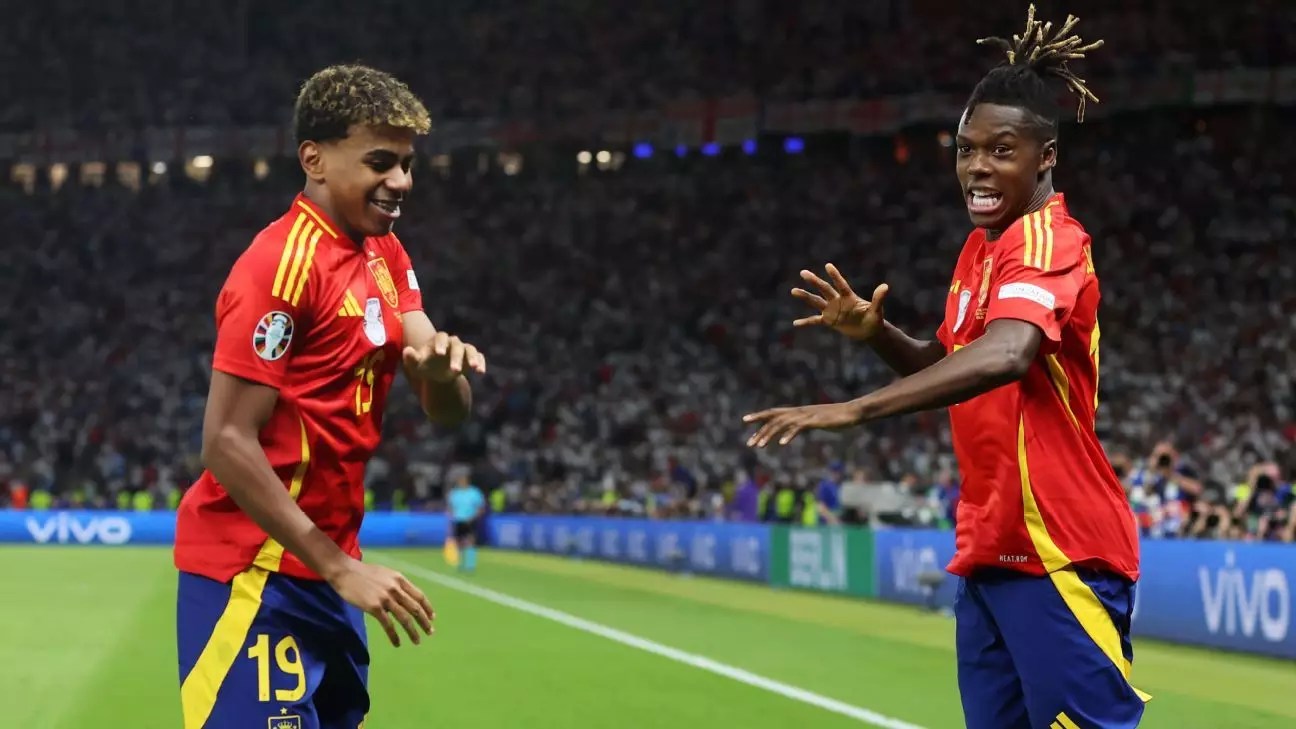Nico Williams, the emerging talent from Spain, has garnered attention not just for his performances on the international stage during Euro 2024 but also for his decision-making regarding his club career. This past summer, he found himself at the center of a tug-of-war between Barcelona and his current club, Athletic Club. Barcelona’s interest was palpable, and numerous players from the Catalan side reached out to Williams, urging him to make the lucrative switch to Camp Nou. Despite the allure of joining a club with such a rich history and sizeable resources, Williams ultimately chose to remain loyal to Athletic Club for at least one more season.
Williams’ conversations with Barcelona players, including rising stars like Lamine Yamal and Alejandro Balde, highlighted the camaraderie that exists among young athletes. Their persistent messages, filled with enthusiastic appeals urging him to join, showcased their desire for a stronger team dynamic and highlighted Williams’ perceived value. The emotional pull of teammate camaraderie is significant, yet Williams made the choice to prioritize his existing commitments over the potential benefits of a transfer to one of Europe’s elite clubs. His reflections on this decision publicly aired on La Revuelta TV underscore the internal conflict that many young athletes face when evaluating their career paths against market pressures and personal loyalties.
In today’s digital age, the pressures of social media can further complicate these decisions. Williams admitted that despite his choice to remain with Athletic Club, he continues to receive messages from both Barcelona fans and his international teammates. This constant influx of opinions adds an additional layer of complexity to his situation. Some fans advocate for his move to Barcelona, praising the opportunity to play alongside elite talent, while others express their desire for him to stay loyal to his roots. The duality of these perspectives reflects the broader discourse in football regarding loyalty versus ambition.
Adding another variable to the scenario is Barcelona’s managerial changes. The club’s recent shift from Xavi Hernandez to Hansi Flick has introduced different disciplinary dynamics within the team. Pedri, a key player for Barcelona, commented on this transformation, illustrating the contrast between Xavi’s stringent fine system for tardiness and Flick’s approach, which emphasizes playing time as a consequence of punctuality. This change might make Barcelona an even more attractive prospect for young players like Williams, emphasizing performance over punitive measures.
As the season progresses, Nico Williams finds himself at a crossroads. His choice to remain at Athletic Club this time doesn’t completely close the door on future opportunities elsewhere, especially if he continues to shine in La Liga. The ongoing dialogue among players, fans, and pundits alike will keep his name in discussions of potential transfers. His situation serves as a microcosm of the challenges young athletes face — balancing ambition, loyalty, and external expectations while forging their paths in professional sports. Ultimately, Williams has chosen to defend his current turf, but the lure of Barcelona may always linger in the background, ready to re-emerge when the timing feels right.


Leave a Reply